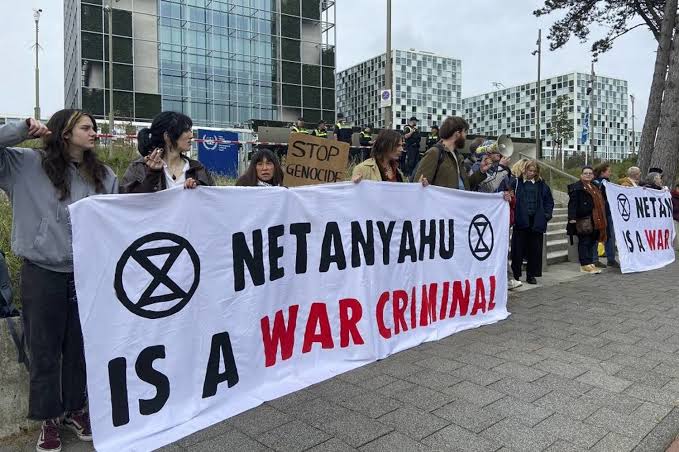
In the genocide case filed by South Africa, The International Court of Justice (ICJ) will declare on Friday whether it will pronounce emergency measures to halt Israel’s war on Gaza.
An official statement issued on Wednesday said that the 17-judge panel will decide on South Africa’s plea in court on January 26 at 12:00 GMT.
Though the ICJ will not quickly table the main question on the charges of genocide pressed against Israel, but will look into the possibilities of restricting Israel’s unhinged actions as requested in the petition.
To listen to the judgement in person, South Africa’s Foreign Minister Naledi Pandor will travel to The Hague, according to Reuters.
The petition, which was brought before the court in a two-day hearing held in the second week of this month, argued that emergency measures are necessary “to protect against further, severe and irreparable harm to the rights of the Palestinian people under the Genocide Convention, which continue to be violated with impunity”.
Among the nine directives put forward by South Africa, the two major demands were an order that would pressure Israel to stop all military operations in Gaza, and another one to remove the blockade on delivery of humanitarian aid.
“How the court addresses these two requests, if it decides to indicate provisional measures at all, is what to really look out for on Friday,” Michael Becker, a former legal official at the ICJ, told Al Jazeera.
Regarding Friday’s announcement, he said that even if the court criticises the onslaught on Gaza, it is hard to assume that the court would urge Israel to halt its military operations.
“I’m not convinced that they will be willing to go as far as South Africa has asked them to go – the suspension of military activities,” he added.
Becker, a legal expert and lecturer at Trinity College in Dublin observed that the ICJ would also likely restate the stance taken by the United Nations in its December resolution and procedurally direct Israel to make sure that no military operation is conducted against the international law and that the delivery of humanitarian aid is permitted.
What we could discern from the history of ICJ is that it is not necessary the court might announce exactly what South Africa has proposed.
The court might arrive at conclusions and measures it finds adequate and appropriate.
Moreover, the judges at ICJ have always been known for being diplomatically cautious about the interests of the nations they belong to.
At the same time, the evidence and arguments presented by South Africa are enough to prompt urgent action against the relentless assault on Gaza by Israel under the genocide convention.
Apart from the emergency provisions, the hearing process at the international court usually takes years as it cannot function independent of the geopolitical power equations.
The verdicts issued by the ICJ are legally powerful, but they lack a mechanism to enforce the directions.
Hence, even if it accepts some of South Africa’s requests, Israel could choose to disobey and violate the regulations.
However, Israel had already denied the genocide allegations as “grossly distorted” and justified it’s genocidal war on civilians including women and children as “self defence”.
They have often boycotted international tribunals and UN investigations claiming they are biased.
If the court asks Israel to suspend military operations in Gaza, it would definitely damage the country’s standing in the international community.
While the European Union continues to be silent on the matter, the United States offers unwavering support and supplies arms to Israel’s war crimes.
According to Gaza’s Ministry of Health, 25,700 Palestinians have been killed, and 63,730 wounded in Israel’s ongoing genocide in Gaza starting on October 7.



